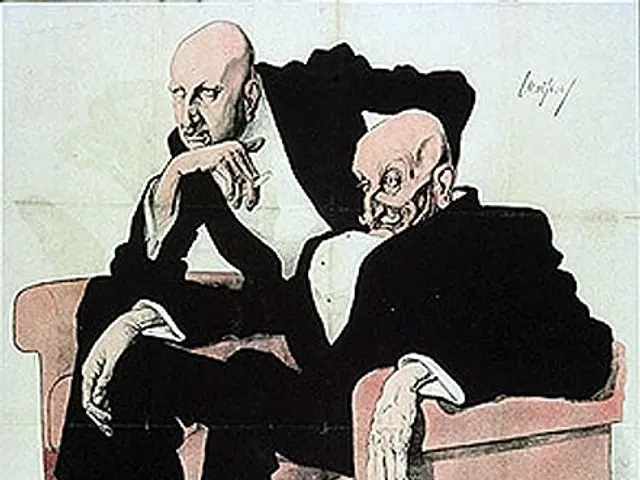French-Polish Friendship Treaty: Strengthening Ties in Nancy
Two leaders, Macron and Tusk, inscribe a French-Polish friendship accord - France's President Emmanuel Macron and former EU President Donald Tusk seal a Franco-Polish friendship accord.
Nancy, a city with historical ties to both Lorraine and Poland, played host to the signing of a significant friendship treaty between France and Poland. This treaty is a crucial step in reinforcing relations, following a period of cooler interactions, primarily due to events like the Kasprzycki-Gamelin Convention in 1939, which despite a mutual assistance clause, failed to prevent the invasion of Poland by Nazi Germany [2].
The Treaty of Nancy
Known as the 'Treaty of Nancy,' the friendly accord includes a mutual defense clause, promising assistance for each other in the event of armed aggression [2][4]. Additionally, French President Emmanuel Macron implied that all aspects, including nuclear deterrence, contribute to the solidarity between France and Poland [2].
EU Security and Defense Enhancement
The friendship treaty is seen as a means to bolster EU security and defense by fostering enhanced bilateral cooperation and mutual support [3]. With this accord, Poland secures an equal partnership with France, signifying a shift in their strategic dynamic [3].
The Weimar Triangle's Future
The Weimar Triangle, featuring France, Germany, and Poland, serves as a platform for addressing European and regional concerns. Although specific recent plans for the Weimar Triangle aren't detailed, its primary principles revolve around:
- Enhancing regional security, stability, and cooperation.
- Promoting economic, cultural, and political exchanges among member states.
- Coordinating efforts with broader EU policies to foster a united Europe.
The signing of the Franco-Polish treaty mighthint at an increased role and closer collaboration within the Weimar Triangle framework, for strategic cooperation among France, Germany, and Poland [3]. With Poland's elevated partnership status, it could potentially lead to more robust collaboration among the three nations on regional issues and EU policies.
- The French-Polish Friendship Treaty, a testament to strengthening ties, is reminiscent of Nancy's historical connections with both Lorraine and Poland.
- The treaty's mutual defense clause, promising assistance in armed aggression, is a significant component of the larger EU strategy aimed at enhancing security and defense.
- The Weimar Triangle, consisting of France, Germany, and Poland, may witness a surge in cooperation as a result of the Franco-Polish treaty, potentially leading to more robust collaboration on regional issues and EU policies.
- The increased partnership status of Poland, as symbolized by the Franco-Polish treaty, could pave the way for a more proactive role within the Weimar Triangle, focusing on enhancing regional security, stability, and cooperation.
- The intertwining of treaties, like the Franco-Polish accord and the principles of the Weimar Triangle, is indicative of a broader coalition committed to fostering political, economic, and cultural exchanges among European nations, thereby promoting a united Europe.






